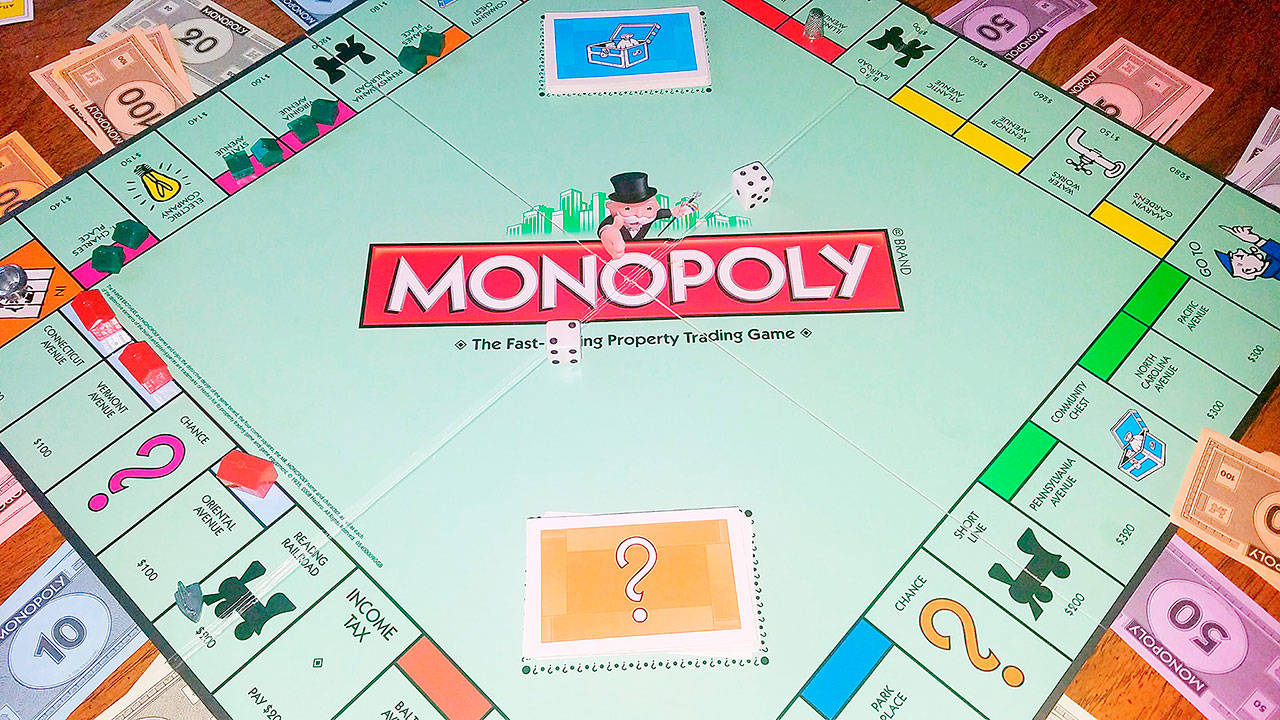There’s nothing that can bring a family together — or tear it apart — as quickly as a game of Monopoly.
As soon as you unfold the board, memories flood over you. Hardship, loss, exhilaration, vengeance — it’s all there, mixed in with a surprising amount of math that you never noticed when you were a child.
What’s irksome is that Monopoly cash is now a different color. The $50 bills are purple instead of blue and it really messes you up when it’s your turn to be banker. But you bite back your frustration because this game is what it’s all about, the American Dream, right there with the Parker Brothers logo.
Parker Brothers — wait, what? The box says Hasbro. Can that be right? You Google it. Hasbro bought Parker Brothers in 1991 when you weren’t paying attention.
When you gather your children around the board, they immediately start arguing over who gets what piece. You let them sort it out themselves, but tell them that you’ve been the Scottie dog for the past 40 years and you don’t intend to change now.
Wait, what? The dog is lost? Holy conniption fit! OK, this is the time to model good parenting. Deep breaths, you can be the iron if you really have to. You give the iron the stink eye and move on.
Once the game gets going, you appreciate how it mixes fun with education. Counting the dice teaches math facts. Each side of the board is 10 spaces, cut into fives by the railroads. Every time rent changes hands, players make change, and once monopolies comes into play, it’s time for multiplication. Throw in some mortgages, and you’ve added a lesson in personal finance.
But it’s the social and emotional learning aspect of Monopoly that really makes an impact. It doesn’t matter how young or old you are, there are five basic types of Monopoly players:
The cheater: They short-change you on rent. They pass out $500 bills when Mom leaves the room. They lie about rolling doubles three times in a row.
The hoarder: They hoard cash and never buy property unless it’s Park Place or Boardwalk. Then, they lord it over you every time you scrape up a rent payment with a snotty comment about how maybe you shouldn’t have wasted your money on Baltic Avenue.
The trader: They missed their chance on the properties you own and won’t stop bugging you with ridiculous bargains. When you won’t give them Short Line Railroad for $250, they accuse you of being unfair.
The mess: Either their money isn’t organized at all, or it’s wedged underneath the edge the board in a way that tilts the whole game off balance.
The board flipper: They are ready to explode at any moment. Turn taking, lost financial opportunities, the uselessness of Water Works and the Electric Company — it’s all fodder for their ire.
Monopoly money is a different color and Toys R Us is dead, but don’t worry — America’s favorite board game is alive and well. After all, a game of Monopoly takes forever. You couldn’t quit playing, even if you tried.
Jennifer Bardsley publishes books under her own name and the pseudonym Louise Cypress. Find her online on Instagram @the_ya_gal, on Twitter @jennbardsley or on Facebook as The YA Gal. Email her at teachingmybabytoread@gmail.com.
Talk to us
> Give us your news tips.
> Send us a letter to the editor.
> More Herald contact information.

























